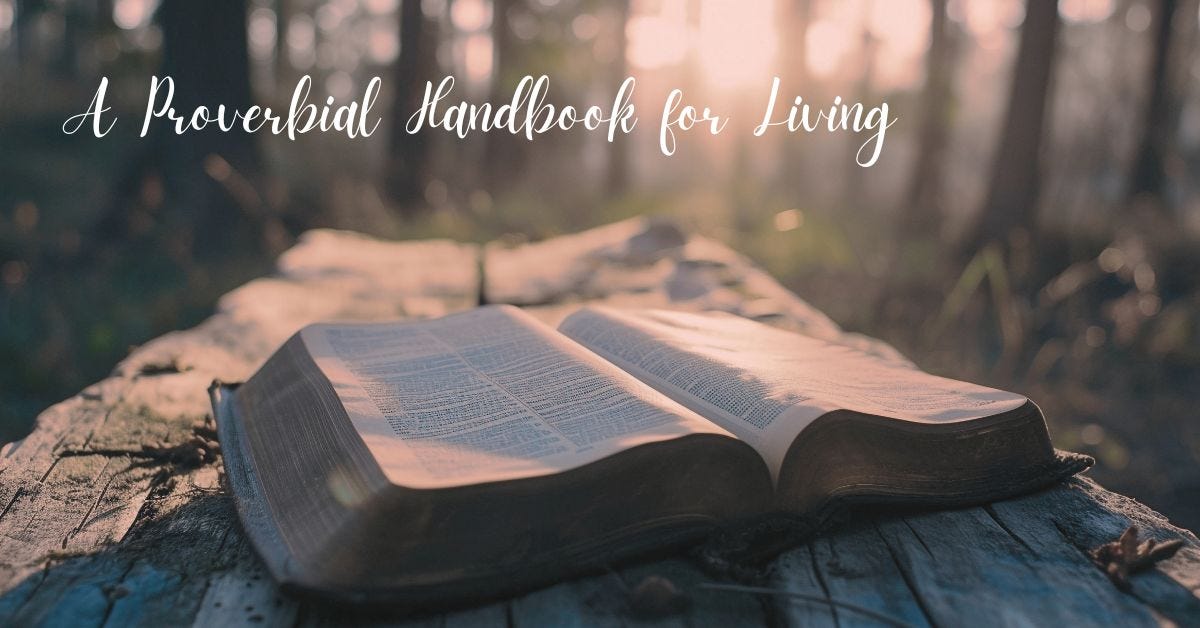A Proverbial Handbook for Living
Deeper Dive
Over the years, my journey through the Bible has been rich and challenging, with surprises thrown in. Being surprised by Scripture can serve as a reminder that God’s Word is alive. It speaks to us right where we are, thousands of years after being written down.
As we study the Bible, there are challenges. One challenge is determining if the meaning in Scripture is for us as it was for the original audience. Proverbs presents its own set of challenges in this regard.
This Old Testament book is a collection of poetic sayings from Solomon, with a handful of segments credited to other wise men. Solomon was the son of David and followed his father as king of Israel.
A Proverbial Handbook for Living
Proverbs is often described as a handbook for living. In the first chapter, we learn the purpose of Solomon’s writings: …for gaining wisdom and instruction (Proverbs 1.2). It is also good to note the book’s overarching theme in verse seven.
The fear of the Lord is the beginning of knowledge. (Prov. 1.7)
Working together, this purpose and theme helps us make sense of Proverbs—to find the wisdom and instruction in the thirty-one chapters.
Here is something I just learned recently. Proverbs is NOT a book of doctrinal statements. Though we find many good and worthwhile sayings, Proverbs is not rich in theology. Keep in mind, “Proverbs are worded to be memorable, not to be theoretically accurate.”1
When reading Proverbs, consider the culture of Solomon’s day. This can help pinpoint the sayings that do not necessarily apply to our 21st-century life. A good Bible dictionary and commentaries are invaluable to learning about the culture.
It’s in the details.
As we study Scripture, there are specific things to watch for that help identify cultural details, relational issues, problems being addressed, questions being answered, doctrinal indicators, and more.





